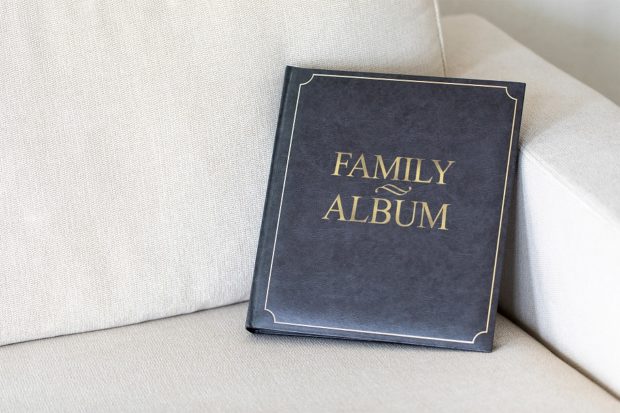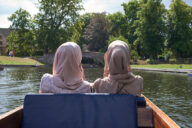When I was growing up, family was considered firstly to be my parents and siblings and then on outwards to include other relatives. It never occurred to me to view others in my community, or even broader as ‘family.’ There was also a strong message at the time that “you can choose your friends, but you can’t choose your family.” This idea that ‘family’ comprised of only relatives and was therefore a fixed entity was widespread. Furthermore, what went on in families was considered their private business and others had no right to interfere, making ‘family’ firmly off limits in terms of closer scrutiny. This attitude continues to exist in the present day and still with a complacency and reluctance to look more deeply into what ‘family’ actually means and how it interlinks with other aspects of human life.
The dynamics of the family unit have certainly changed over time. These days many children grow up in single parent and blended family situations. There are also increasing numbers of grandparents and other relatives raising children. Same sex couples rearing children is another growing area and in Australia, the number of children in foster care keeps increasing yearly. Surrogacy and adoptee parents also co-exist with more traditional forms of child caring and rearing and family groups. Adult children are living with parents for years longer than in the past. Beyond the genetic descriptions of ‘family,’ people also often consider who’s in and who’s out of their ‘family’ along religious, political, ethnic, cultural, geographic and/or socioeconomic lines. This all suggests that the ‘family’ concept is much more dynamic and multidimensional than often first assumed.
As people move through the course of their life, the impact of their upbringing is massive. There are undoubtedly many wonderful qualities that are passed along in families from one generation to the next. The family environment is a primary teaching ground for children as they learn about life and relationships from those around them and they carry many of these values, ideas and beliefs into adulthood. The next generation of citizens is shaped, with standards set that contribute to the makeup of the fabric of society, wherever that person is living. Some may ask “So why is this topic even being raised: isn’t this all a good thing?” The answer to that is that it is not just the valuable qualities that are passed on, it is also the uglier aspects of human behaviour which we usually don’t like to be reminded about that often sprout unchecked because they originated within the largely unaccountable family setting.
By taking a wholistic view it can be seen that ‘family’ is a central background feature behind many social ills, yet seemingly there is a massive unwillingness to examine the concept in any detail.
Take for example, the fact that many individuals believe it is acceptable to behave abusively towards others if it is within the confines of the family unit. Given the central role of family in raising children, it’s reasonable to assume that the transition away from being loving and open towards others started early in life. Sadly, what such children were taught/experienced within their particular family is often then passed on, leading to the normalisation of intergenerational cycles of abusive behaviours continuing with little real accountability.
The illusions around family are exposed even more when we are prepared to stand back and honestly look at how ideals and beliefs around ‘family’ link to human behaviour worldwide. The number of refugees globally has exploded in recent years and includes many displaced children who are not accompanied by a parent or a guardian yet are in desperate need of care and protection. Who is their ‘family’? Who is responsible for protecting, nurturing and caring for them? Is it the government of the countries involved and their citizens – or the wider world? Similarly, how do our pictures of who is and isn’t family apply with other vulnerable populations such as those caught in human trafficking and/or paedophilia rings?
While these questions may cause discomfort, they do suggest that we can’t ignore looking at the part our individual views around ‘family’ have played in limiting our willingness to compassionately respond to the high prevalence of multisystemic abuse globally. They also raise questions about what we have been indoctrinated into due to our family beliefs and ideals; what’s allowable and what’s not and so forth as the following quote invites us to ponder on:
“The three basic tenets that found and make family true:
True family is about love;
it is not about abuse and control.
True family is about love;
it is not about surnames, blood, skin colour or genes.
True family is about love;
it is not an intellectual understanding, gathering or
the making from an egg or sperm.”
[Serge Benhayon, Esoteric Teaching and Revelations, Volume II, Ed. 2, p. 442]
When ‘family’ is reduced to surnames, blood, skin colour, genes, eggs or sperm, instead of love, it explains how what we do to each other in the name of ‘family’ is what fuels suffering – be it abuse, violence, domination, holding rigid expectations, isolation or exclusion.
When we experience, witness or repeat these elements in our own lives, we can collude with the status quo and ignore or dismiss them as being ‘just the way it is’ and further entrench the rot around family. Or we can start to make family about connecting with the inner heart that knows true love, and from there impulses us to live not blinkered, reluctant or wishful lives, but responsibly with awareness, understanding, compassion and joy.
When family is lived in this way our immediate family benefits, but even greater than this is the valuable contribution we are making to our fellow human global family through the expression of care and kindness on a daily basis. One thing is for sure: whichever investment we choose to make will either allow the harm to continue unchecked, or it will support universal family healing and wellbeing.
By Helen Giles, Social Worker, Townsville
Further reading:
The Corruption of True Teamwork
Family Defined by Quality
Parenting and Self-Care – Crashing the ‘Helicopter Parenting’ myth





